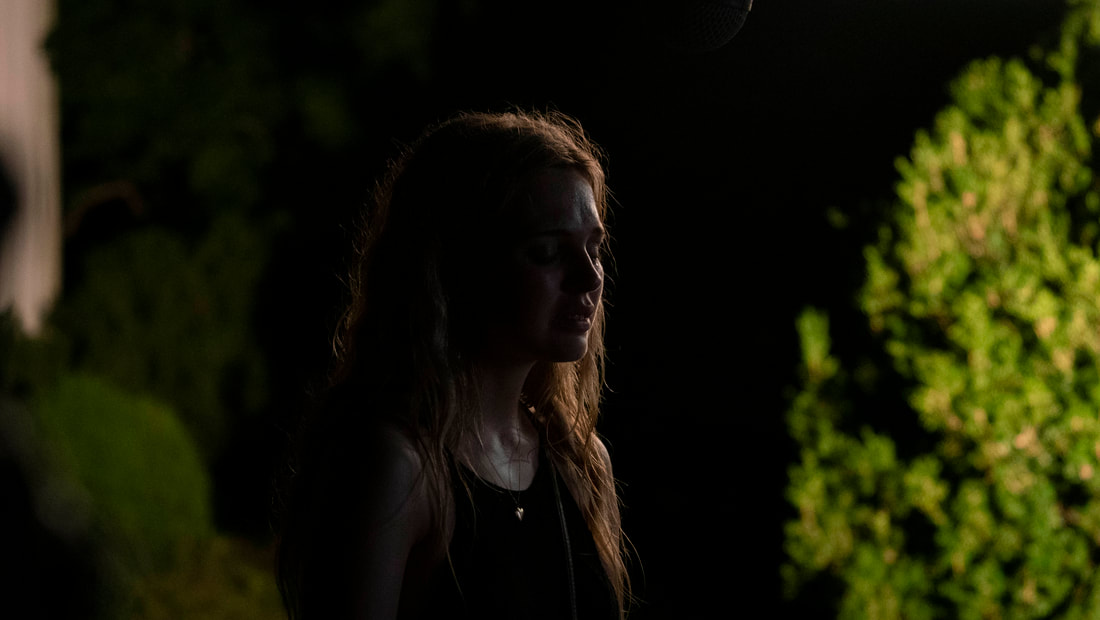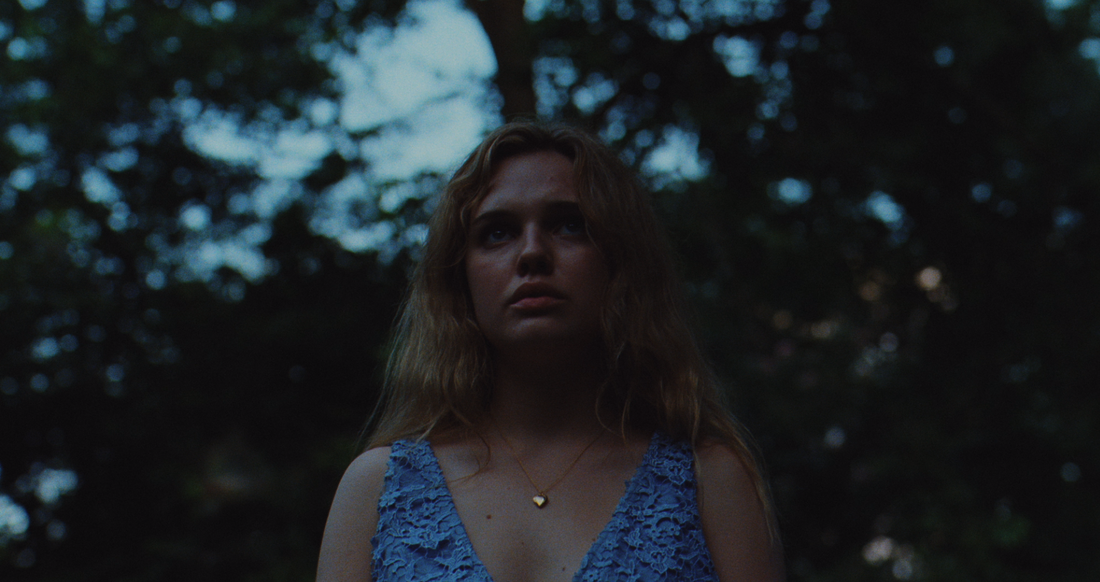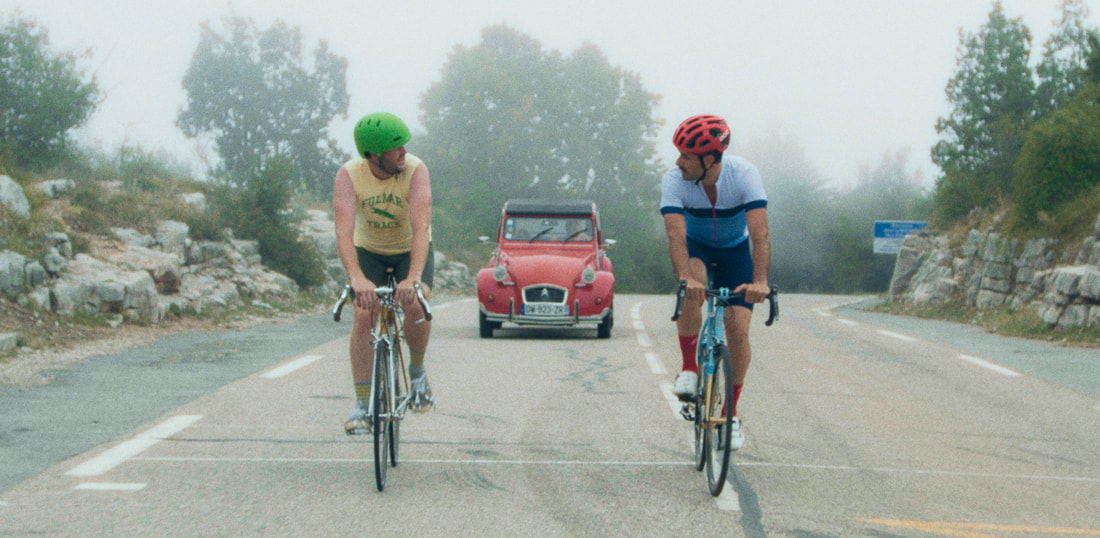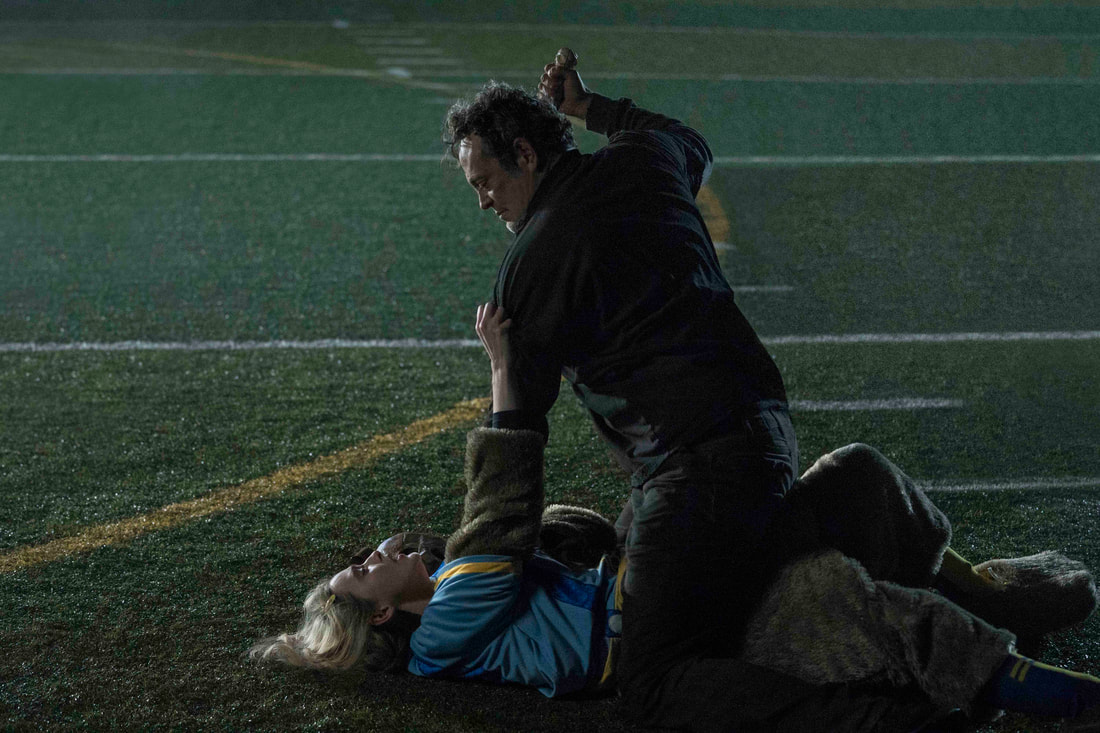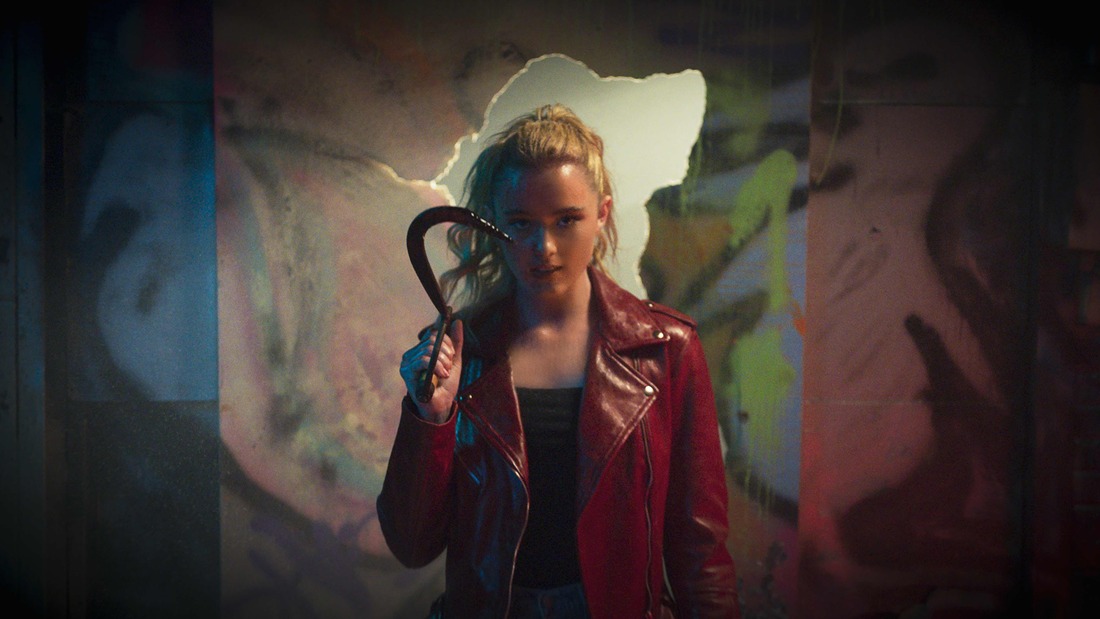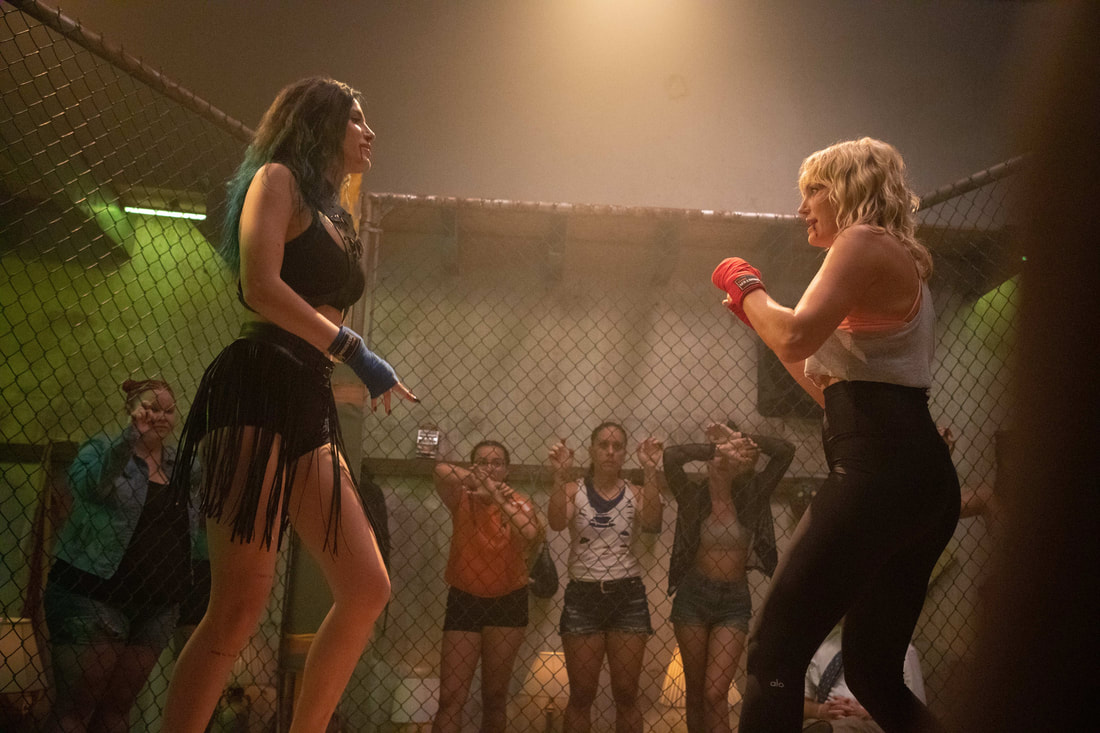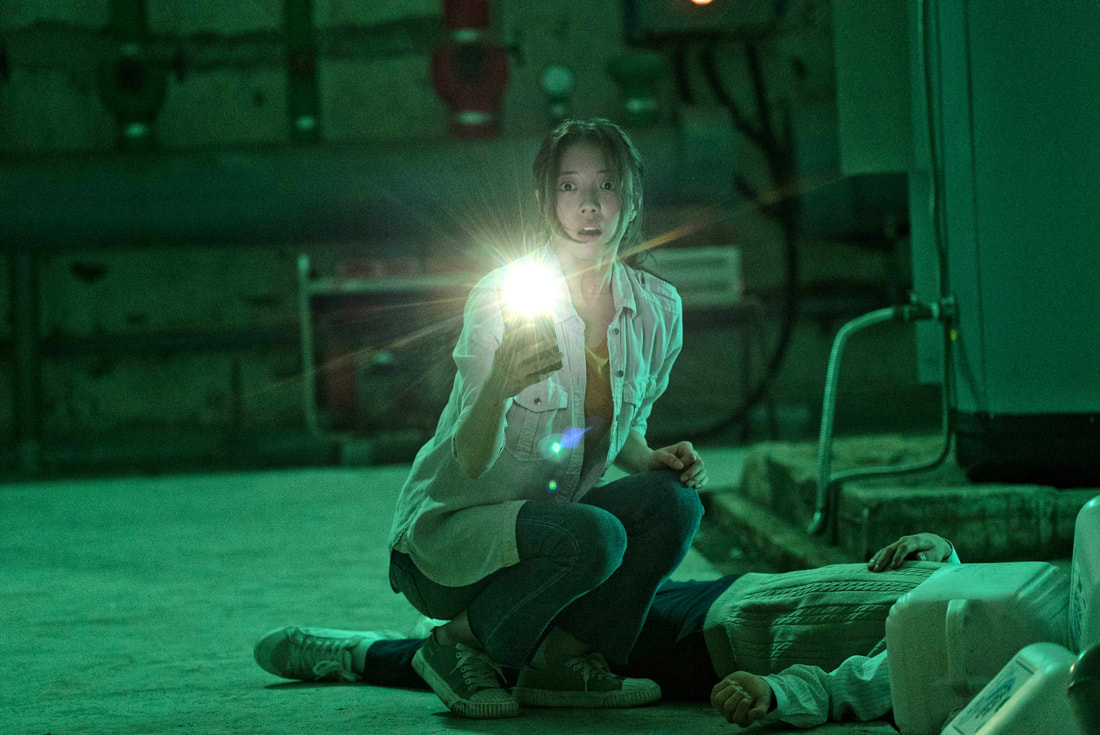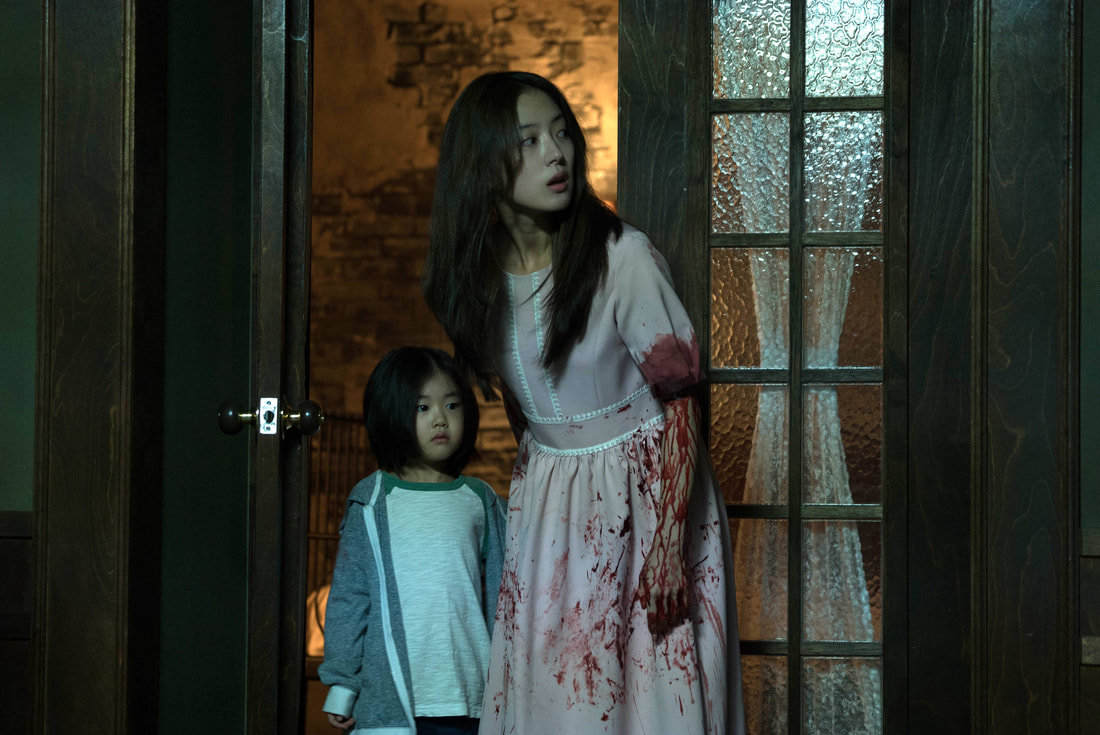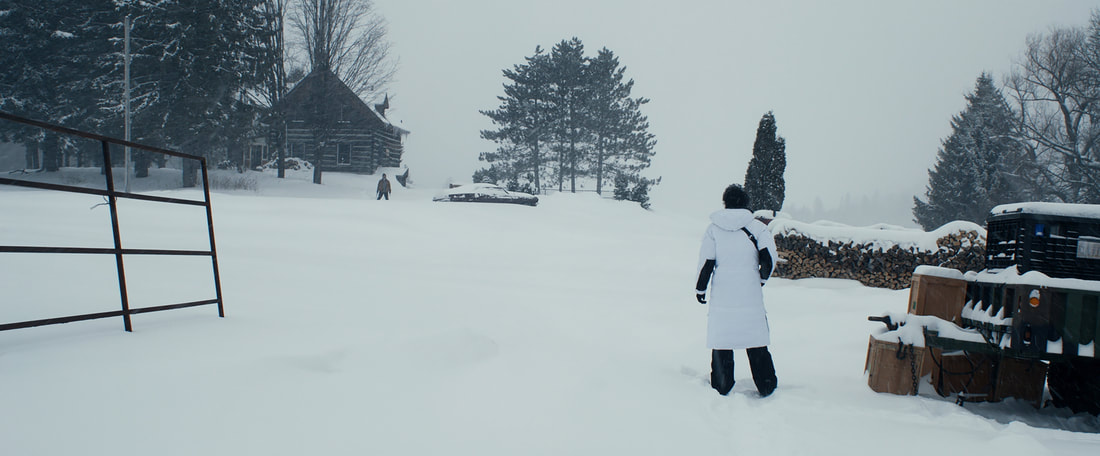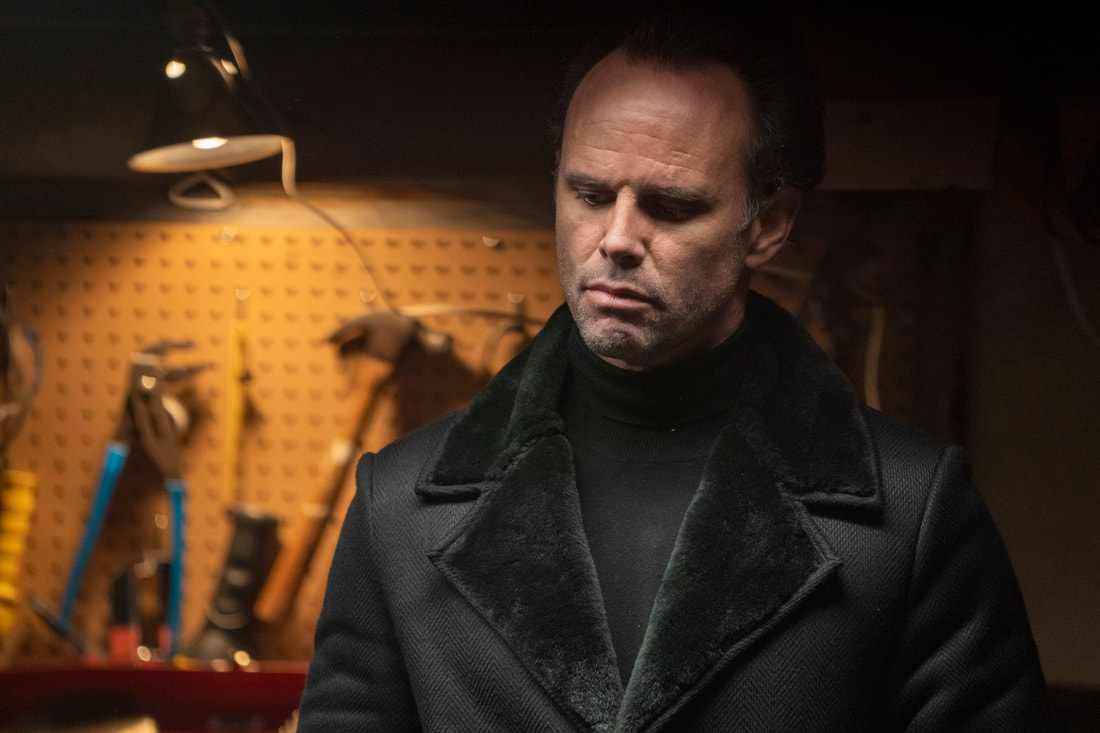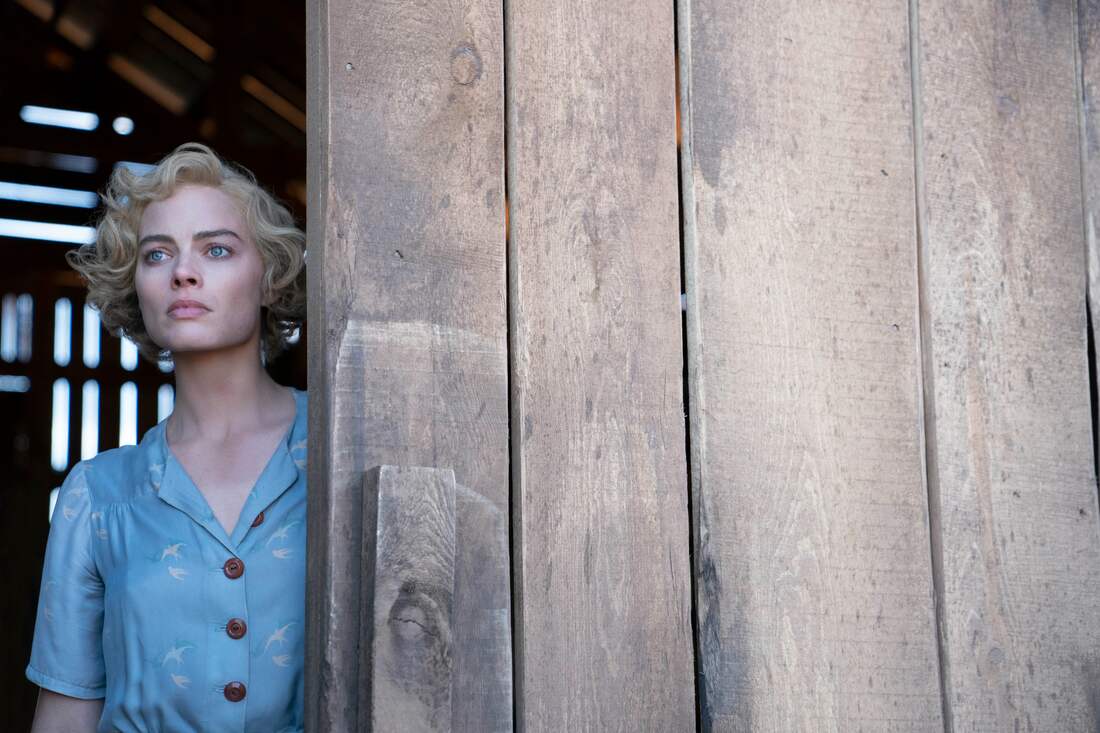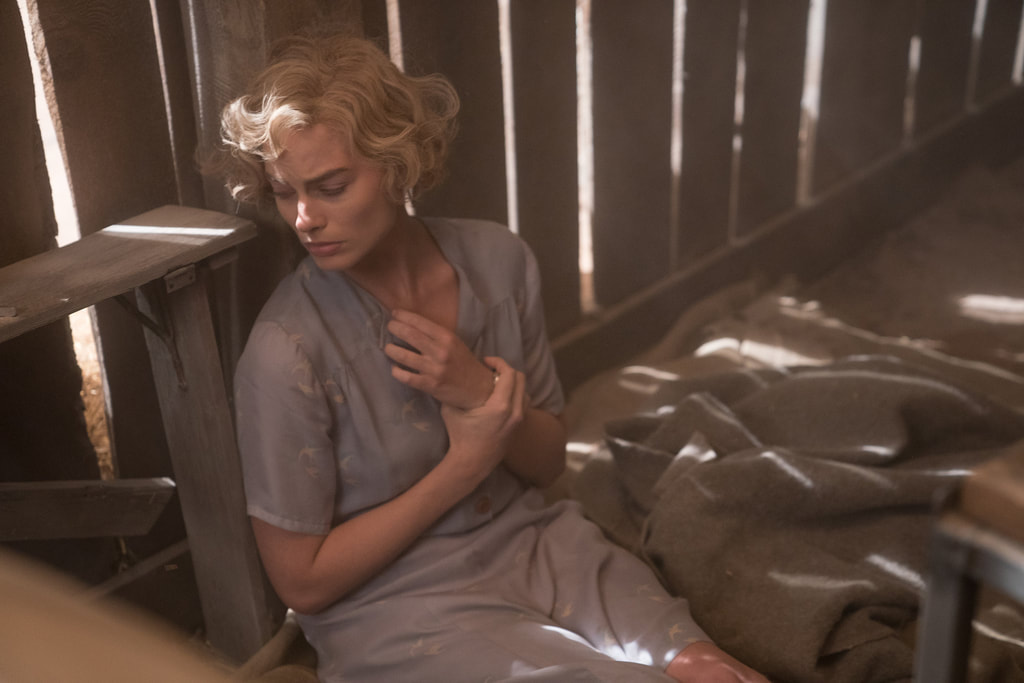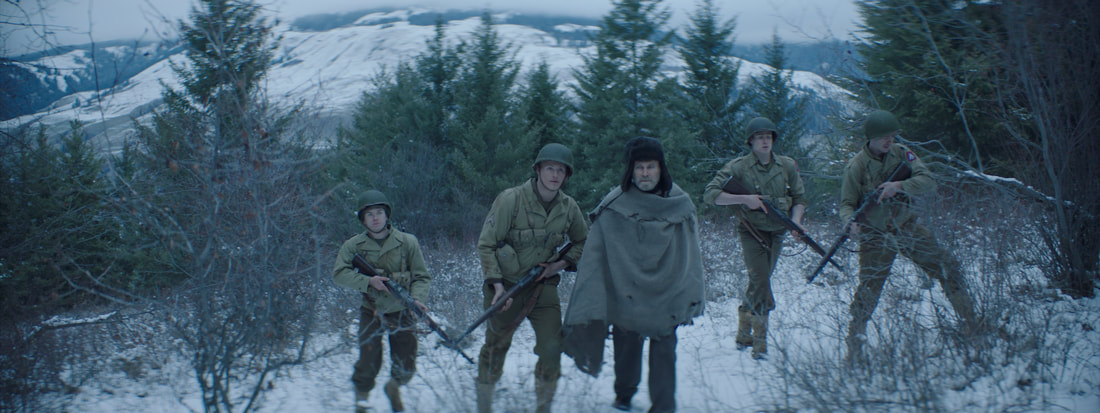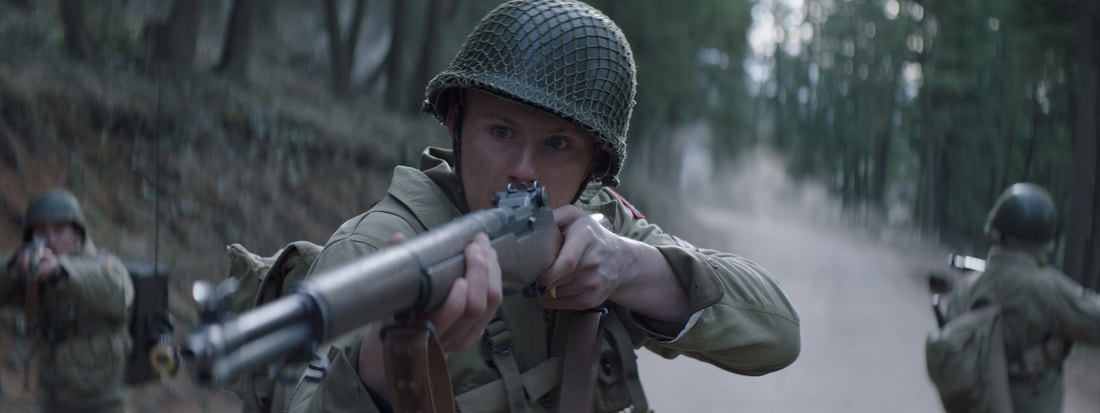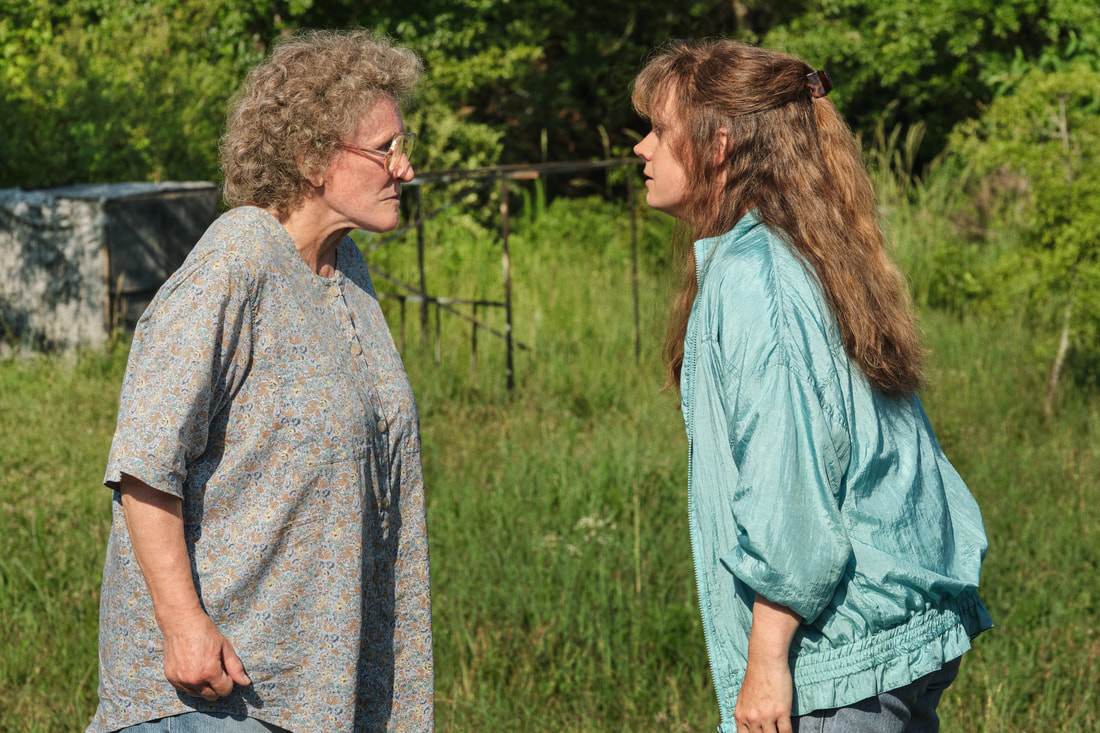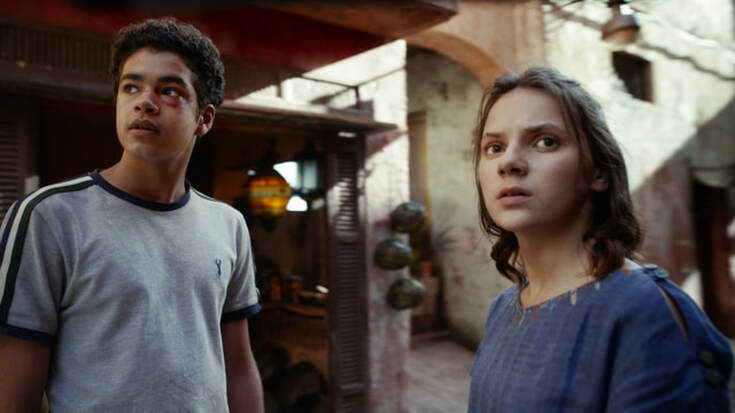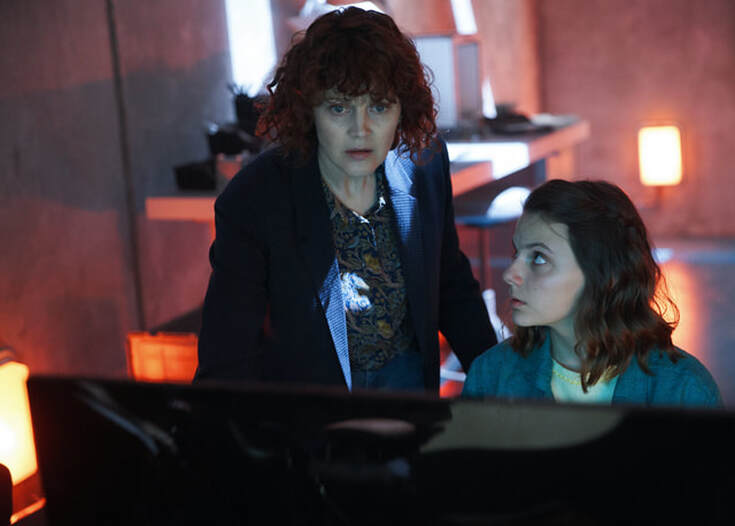|
Review by Sean Boelman
The only thing particularly sizable about David Raboy’s feature directorial debut The Giant is the amount of frustration you will have once the credits roll. A conventional mystery without much of a mystery to offer, Raboy’s film is one of those exercises in style-over-substance that is annoyingly pretentious.
The movie follows a teenage girl whose life is turned upside down when her missing boyfriend suddenly reappears and a vicious murder occurs, both on the same night. However, unlike the premise may suggest, this is definitively not a murder mystery — it is simply a high school melodrama with a brutal background. Much of the film is spent watching people talking. About what, you may ask? Things, symbols, metaphors… none of it really matters anyway since everything is so empty. Raboy couldn’t care less about whether or not the viewer understands the movie or its meaning, but even more damning is the fact that he doesn’t even seem to care if the viewer cares. After a while, these vaguely philosophical ramblings go from tedious to boring, and eventually to outright angering. The film is an hour and forty minutes long, and by the thirty minute mark, all but the most patient viewers will be checking their watches wondering when it is going to be over, and even those with more attention to give may find themselves unmoved.
It would help if there were any character development whatsoever. Many of the supporting characters are indistinguishable from one another. Each new person introduced is just another stock character to add to the dirge to the final shot. Even the two leads are generic, a small-town girl who obviously doesn’t belong and the bad boy who is obviously a negative influence on her.
The enormously talented Odessa Young tries her best to bring something to the role, but she can’t enliven a script that is this unbearably dull. Of any of the performers, she gives the most naturalistic delivery, uttering her unnaturally wordy observations with the only thing the movie has resembling any sort of realism, but that is not enough. What makes it most clear that Raboy thinks he’s making something profound is the directorial style, which feels like it was trying to do something ambitious but instead is barely competent. The film is so dark that you can’t see a lot of it, and there’s no good reason to set the movie at night apart from creating a noirish sensibility (which Raboy doesn’t do). The Giant is full of empty metaphors and horribly stiff dialogue. This movie has the right elements working in its favor, but filmmaker David Raboy wasn’t able to pull them together into something compelling, or even moderately interesting. The Giant hits VOD on November 13. Rating: 2/5
0 Comments
Review by Camden Ferrell
The Climb had its premiere at the 2019 Cannes Film Festival. The feature directorial debut from writer/director Michael Angelo Covino also played at the Telluride Film Festival, Toronto International Film Festival, and the Sundance Film Festival. This is a one-of-a-kind film that is as unconventional as it is darkly hilarious.
This film follows best friends Mike and Kyle. We see their friendship go through the ups and downs of life over the course of several years, and we watch as they endure love, betrayal, and most of all laughter. This is a simple premise that is executed very well and provides a solid foundation for telling this story. The script, written by Covino and co-star Kyle Marvin, is deft if nothing else. It is highly competent, fast-paced, and excessively witty. While the dialogue is a lot smarter than one would expect in real-life, it’s a full of fantastic exchanges, one-liners, and relatable moments. It blends its dark humor with a refreshing combination of dramatic and heartwarming moments. It’s a unique script that helps the movie feel fresh and original throughout. The acting is superb throughout the film. Led by Covino and Marvin, real-life best friends, this film is bursting with great chemistry. From the very fist scene, both of the leads flex their acting chops and play off of one another with surprising skill and ease. They handle the wide variety of tones and situations well, and they have compelling screen presences that make the film much more enjoyable. While Covino and Marvin are the real stars, the film is also supplemented by a proficient supporting cast.
One of the most notable aspects of this film is its commitment to tracking shots and long takes. While some movies use this technique as a gimmick, this film utilizes it to develop characters, situations, and tension. These long takes are masterful, and they typically don’t feel like tracking shots thanks to how engaging the writing and acting is. It’s a flourish that ages well throughout the movie and never feels shallow.
A lot of the success of the aforementioned shots comes from the fantastic direction of Covino. This may be one of the most impressive directorial debuts this year, and it’s a film that is a showcase for his brilliant talent on and off screen. The scenes are blocked very well, and it helps maintain the consistent pace throughout. Divided into chapters, this movie does a great job of incorporating its themes of love and friendship over this multi-year story. While it’s not perfect, it’s nearly there. It’s a well-told story that will resonate well with audiences. It’s a story that is hilarious and very relatable. The Climb is a fantastic calling card for Covino, and it is a consistently hilarious portrayal of friendship. It’s quirky and unconventional, but it should easily find a receptive audience that will connect with its hilarious but flawed characters. The Climb is in theaters November 13. Rating 4.5/5
Review by Sean Boelman
Christopher Landon’s Happy Death Day perfectly blended horror with the Groundhog Day set-up, so one hoped he would do the same with Freaky Friday in his newest film Freaky. Yet despite this killer premise and a very funny performance from Vince Vaughn, the movie is too weighed down by high school tropes to be as tongue-in-cheek as it seems to hope.
The film follows a socially-awkward teenage girl whose body is swapped with a deranged serial killer, leaving her four hours to reverse the change before it becomes permanent. On paper, this is an extremely cool idea, and Landon and co-writer Michael Kennedy are able to pull it off every once in a while. What the movie seems to struggle with the most is trying to blend the slasher genre and the fish-out-of-water comedy that comes with the body swap. For the most part, these two sides function mostly independently of one another. There will be a brutal moment, and then a bunch of funny ones, and then the humor stops for another kill. Additionally, all of the characters in the film are annoyingly archetypal. At first, it seems as if Landon and Kennedy are trying to do something playful and satirical with them, but they soon become too comfortable working with the archetypes and the movie starts to feel quite flat as a result.
Vaughn gives a hilarious performance as the teenage girl trapped inside a middle-aged man’s body. It’s definitely nice to see him return to more comedic fare after his recent dramatic stint. That said, the film fails to take advantage of the rest of its cast. Kathryn Newton is extremely talented but doesn’t have dialogue for much of the movie. And Alan Ruck’s performance is disappointingly one-note.
Perhaps the single biggest problem here, though, is its use of conveniences. The references to Aztec human sacrifice are lazy at best and outright offensive at worst. One of the most obvious instances of this is that the film supposes that a pre-colonial artifact from Central America would have an inscription in modern Spanish, and this is just the beginning of its cultural problems. Landon does pull off some impressive kills, but this is yet another case of the trailer doing disservice to the movie, revealing most of the best moments. Even more frustrating though, is that Landon doesn’t really allow the aftermath of these brutal deaths to impact the viewer, cutting to a joke right after they end. Freaky offers some legitimately entertaining moments, but it fails to live up to the tremendous potential it has. Although it obviously wants to put a spin on the formula, it instead falls victim to one too many cliches. Freaky opens in theaters on November 13. Rating: 3/5
Review by Sean Boelman
On paper, Chick Fight sounds like a bad idea: a movie about female empowerment written by a guy, directed by a guy, and featuring Alec Baldwin in a prominent supporting role. Yet despite the odds working against it, this is a surprisingly fun comedy that is more heartwarming than it has any right to be.
The film follows a woman who, facing rock bottom in her life, is introduced by her friend to an underground fight club for women where she finds herself in more ways than she expected. It’s pretty low-brow, and the story is a pretty basic underdog set-up, but there’s something irresistibly charming about it nevertheless. One of the things that helps this movie stand out is that it doesn’t use the characters as the butt of its jokes. The audience feels like they are laughing with the characters, not at them. Sure, the result isn’t laugh-out-loud hilarious, but there are enough witty one-liners and physical gags for the film to move along at a consistently nice pace. The movie also puts a lot of effort into building the dynamic between the central characters, and this is part of why it works so well. The rivalry that forms between the protagonist and the bratty young diva is a bit conventional, but writer Joseph Downey wisely focuses more on the friendship between the protagonist and her best friend, which will really endear the audience to the story.
Admittedly, the film could have gone into more depth about the movie’s messages about mental health. And at times, it does feel slightly gazey as it shows women punching each other. But for the most part, it’s an unexpectedly wholesome film about people finding themselves through an unorthodox means of self-expression.
Malin Akerman is starting to be typecast as the straight-faced comedy protagonist who has to loosen up, but she pulls off the role well, so there’s not a whole lot to complain about in this case. In the supporting cast, Alec Baldwin feels out-of-place (and ultimately unnecessary by the end), Bella Thorne is over-the-top, and Kevin Connolly is charming. Dulcé Sloan is the real standout, though, giving the funniest performance of the bunch. Director Paul Leyden shoots the movie pretty effectively. The boxing matches are solid, composed and edited in a way that feels like they are taken from a legitimate sports movie and not a comedy. That said, the area in which the film is lacking are the training sequences, which are sadly bland and uninspired. Chick Fight probably shouldn’t have been good, but it’s a nice little comedy. There are enough laughs, fight scenes, and heartfelt moments to make it one of the more pleasant mainstream comedies in recent memory. Chick Fight hits VOD on November 13. Rating: 3/5
Review by Sean Boelman
Asian horror is often constructed very differently from American horror, allowing it to scare audiences in completely different ways. What Yoon Een-Kyoung’s Lingering lacks in story, it more than makes up for in atmosphere in frights, making this a chilling if slight supernatural flick that genre fans will want to check out.
The film follows a woman who begins to unravel a mystery when trying to drop off her younger sister at an old hotel run by her late mother’s friend. What that mystery is ultimately doesn’t matter, but it puts these characters in a spooky setting with sinister forces waiting to act upon them. Many of the best moments are in the first and third act. Admittedly, Yoon pulls off the best scares early on, with two or three shots that are truly disturbing. The middle section does drag quite a bit, as it tries to throw in twists and turns to keep the audience guessing, but Yoon is able to stick the landing with an ending that is predictable yet offers satisfying resolution. That said, there are a lot of things that feel like they are missing from the movie, the chief of which is something to say. The obvious angle to this story involves grief and how the two process the loss of their mother, but this is really only addressed in the third act and through the occasional bit of expositional dialogue.
It also would have been nice to see more of an investment in the relationship between the two sisters. For most of the movie, they function separately. Either scary stuff is happening to the younger sister, or the protagonist is being haunted as she tries to solve the mystery. Had they come together a bit more frequently, the film could have had a greater emotional impact.
Park Ji-Young is a highlight in the movie, as the hotel-owning friend of her mother, coming off as eerily distant, but the rest of the cast is somewhat underwhelming. Lead actress Lee Se-yeong isn’t given a whole lot to do but act startled every once in a while, and child actress Park So-yi is even less utilized. Also frustrating is the fact that Yoon doesn’t seem to know what to do with the film’s disturbing imagery. There are a few messed-up shots and a creepy location, but the movie largely feels too restrained. Those really terrifying early scenes will keep viewers on their toes, but not enough so to sustain the whole film. Lingering has its fair share of issues, many of which come down to the script. Still, it offers a solid handful of spine-tingling moments, so it will be a decent enough watch for hardcore horror fans. Lingering streams on Shudder beginning November 12. Rating: 3/5
Review by Sean Boelman
On paper, Fatman sounds like the type of mean-spirited action flick that runs directly counter to the spirit of the holidays. Yet despite its seemingly Scrooge-like disdain for Christmas, there is something undeniably fun about the goofiness of the whole thing, even if it won’t leave viewers feeling particularly jolly.
The film is about an entitled young boy who, upset with Santa Claus for leaving him a lump of coal, sends a hitman (who has his own grudge against Father Christmas) to take him out. It’s a ridiculous storyline, and the way in which it is executed makes it even more bizarre, almost an exercise in absurdism, but without the sense of humor to back it up. There is also an additional subplot about Santa repurposing his workshop to fulfill a government contract building weapons parts, but it goes nowhere. As this storyline is introduced, it seems as if the movie is going to turn into a deconstruction of the consumerist practices around the holidays, but this is largely abandoned in favor of more mindless action-comedy. Those hoping for this to be a game of cat-and-mouse between Santa and the assassin will be sorely disappointed. In fact, that only makes up the third act, and while that is a memorable note to end on, the first two-thirds struggle to find their footing. A lot of it is a bratty kid whining or the hitman driving to his destination.
Still, the finale is an impressive show of action and bloodshed, making up for the stalling that constituted much of the rest of the film. Directors Eshom and Ian Nelms do a good job of utilizing their set design in this action sequence, first playing around in Santa’s workshop-turned-military-factory, then taking it outside in the snow-drenched fields.
One of the movie’s greatest shortcomings is that the characters are nearly insufferable. Audiences simply won’t care about the hitman or his young client because much of their screen time is spent complaining about how they didn’t get their way (which is obviously because they are on the naughty list). And the Santa shown here is miserable and misanthropic. Walton Goggins is the clear highlight of the film, giving a sinister performance of the assassin with an unorthodox mission. His delivery of the one-liners is spot-on and will leave viewers wanting to see him again as the lead in a B-movie action flick. Young actor Chance Hurstfield nails the annoying aspect of his role. Fatman is a mess, and it really shouldn’t work as well as it does. Don’t expect this to be a new addition to holiday canon, but it’s decent enough fun for what it is, even if it doesn’t offer much in the way of festive cheer. Fatman hits theaters on November 13 and VOD on November 24. Rating: 3/5
Review by Sean Boelman
In this time in which people are increasingly disillusioned with their suffering and the way the world is treating them, one would think that the Bonnie and Clyde story would resonate now more than ever. Unfortunately, in trying to bring an expressive vision to these tropes in his new film Dreamland, Miles Joris-Peyrafitte loses sight of what made the story work in the first place.
The movie tells the story of a teenager who, trying to earn the bounty on the head of a fugitive, instead finds himself falling in love with the attractive bank robber. Nicolaas Zwart’s script hits all the familiar beats, without much deviation from the formula, causing the film to chug along at a predictable pace. Zwart set his movie in the early days of the Great Depression, which is only the first indicator of the lack of originality in the script. The film’s potential commentary on the economic factors of the time and how these messages still ring true today is eschewed in favor of a more straightforward “love conquers all” storyline. It doesn’t help that the character development in the movie is rather shallow. The protagonist’s struggles with daddy issues are nothing new to the genre, and accomplish very little other than the most basic of sympathies. The love interest is a combination of the seductress and manic pixie dream girl, doing little else than pushing the plot and protagonist’s arc along.
That said, Margot Robbie’s performance is what really makes the film. As always, she brings a lot of charm to the role, but also sells the more vulnerable moments. She acts leaps and bounds above her co-star Finn Cole. In the supporting cast, the standout is Travis Fimmel, who gives a strong turn as the sometimes abusive stepfather.
The pacing of the movie is also somewhat lackluster. Zwart struggles to find the right balance between the family drama, crime thriller, and romance elements, and as a result, the film feels like a tonal mash-up of different tropes. By the time that the excitement really starts to hit in the final act, it’s too little, too late. Perhaps the most interesting thing about the movie is Joris-Peyrafitte’s directorial style. There are some moments that immerse the viewer really well in 1930s America, but other moments feel much more ambitious and abstract. It’s disappointing that Joris-Peyrafitte found himself so limited by the conventionality of the script. Dreamland has all the right pieces to be really interesting, but they don’t come together in a satisfying way. It’s worth watching for the quality of Margot Robbie’s performance, even if the rest of it is mostly just very average. Dreamland hits theaters on November 13 and VOD on November 17. Rating: 3/5
Review by Sean Boelman
The fact that the original title of Robert David Port’s WWII drama Recon was “Peace” should tell viewers everything they need to know about this frustratingly paint-by-numbers flick. Heavy-handed with its message and coming up short in providing compelling combat sequences, this film struggles to justify its existence.
The movie follows a unit of soldiers who, facing internal struggles about the ethics of war, are sent on a reconnaissance mission led by an Italian civilian whose allegiance is unknown. For a film about soldiers diving headfirst into enemy territory, there is disappointingly little excitement here, and Port’s screenplay fails to compensate for it in any other area. Based on a novel by Richard Bausch, this story is less about the war itself and more about the impact that it has on the soldiers. On paper, having a movie about the paranoia that these soldiers experience, both among themselves and towards their foreign guide, sounds interesting, but the approach that Port takes is too self-righteous to work. There is no doubt that the film means well with its message exploring the ethics of war, but at this point, war movies have long turned away from glorifying war to showing its terrors. Even more frustrating is the fact that the movie seems to think that it is saying something new, especially in the finale that is purely expositional dialogue.
Additionally, the film fails to invest in the dynamic between the soldiers, causing the paranoia aspect to fail. For something like this to be successful, we need to question not only why we should trust them, but also why they don’t trust each other. And since the ending is so predictable, this doubt never really comes into play.
Alexander Ludwig does a solid job in the lead role, doing his best with a character that gives him very little in terms of good dialogue, but when the movie does require some range, he is able to pull it off. Everyone in the supporting cast is pretty unmemorable, giving turns that feel like they could come from any war film from any era. Port does succeed in making a mostly effective movie in a visual sense, but as expected, it’s also very safe and straightforward. The only element that stands out in one way or the other is the score, which is somewhat overpowering at times. Otherwise, Port’s film is a well-shot but plain war movie. Recon was seemingly always meant to be an intimate and small-scale take on the genre, but its main failure is that it fails to give the audience sufficient reason to care. It’s the same type of apologetic war film that has been seen hundreds of times before, and not a very interesting one at that. Recon screens in theaters for one night only on November 10 and hits VOD on November 11. Rating: 2.5/5
Review by Sean Boelman
Some movies are obviously made to cash in on the sentimentality of their story and star power of their cast and crew, and Ron Howard’s newest film Hillbilly Elegy is a perfect example of that. Well-meaning but needlessly melodramatic and plainly-shot, those hoping for an empathetic biopic like he made in the ‘90s and early 2000s will be sorely disappointed.
The film follows a Yale law student who, returning to his hometown to deal with some family troubles, must confront his childhood and how the American Dream may or may not allow him to carve his own path. Even though there are undoubtedly people who will connect with the story, its obvious eagerness to please and inspire results in it losing any sense of emotional authenticity. One of the biggest issues with the film is that it can’t seem to figure out what it wants to be about. As an exploration of the American Dream, the film is extremely skewed and surprisingly mean-spirited, focusing on the factors that tried to hold the protagonist back rather than how he overcame them. Because of this, the film leaves viewers with a bit of a bitter taste. The other half of the film focuses on addiction, but more often than not, this comes across as pity-mongering. A few legitimately touching moments show the potential that the film has, but Vanessa Taylor’s screenplay frequently sticks to the familiar (and safe) beats. When it tries to address the more difficult mental health aspect of the story, it largely falls short.
Additionally, the narrative is poorly-constructed. The flashbacks are where a significant majority of the conflict and substance is found. Those portions of the film which feature the protagonist as an adult serve as little more than a framing device. A subplot about his embarrassment of his family affecting his relationship with his girlfriend is unnecessary and underdeveloped.
Howard’s directing style is just as safe and straightforward as the script. Everything about this film is on the heavy-handed side. The cinematography is way too saturated, which is particularly problematic in scenes with a darker tone, as they reduce the emotional impact that the film could have had. The score by David Fleming and Hans Zimmer is also overbearing. Glenn Close’s performance is the main highlight of this film, but even she struggles to boost her part that offers some of the worst dialogue in the entire script. At this point, Amy Adams is simply trying too hard, giving a turn that lacks the nuance and subtlety to resonate. Others, like Haley Bennett and Freida Pinto, are disappointingly underused. Hillbilly Elegy feels like a film that was made with a specific audience in mind, yet in setting its sights so precisely, it loses track of what made the story worth telling in the first place. It’s not incompetent, but it still feels like a tremendous misfire. Hillbilly Elegy streams on Netflix beginning November 24. Rating: 2.5/5
Review by Sean Boelman
Most kids who grew up early 2000s went through a phase where they were reading one of three young adult fantasy series: J.K. Rowling’s Harry Potter, C.S. Lewis’s The Chronicles of Narnia, or the best of the three, Philip Pullman’s His Dark Materials. Spectacularly bringing the intricately-written world of Pullman’s novels to life, BBC One and HBO’s television series returns with a second installment that is even more impressive than its predecessor.
Based on the second book in the trilogy, The Subtle Knife, the series picks up after the end of the first season, Lyra and Will having both entered the windows in their respective worlds with the authorities chasing after them. Northern Lights (or The Golden Compass, as it is known in the States) is all about setting up these worlds, but The Subtle Knife allows the characters to go on a real adventure. Something that is noticeable about this season compared to the last is that it does a much better job of juggling all the moving parts. In the first season, it was clear that all the subplots were building to something, and they eventually came together. Here, their relation and interdependence is clear from the start, allowing the pacing to feel much more effective. This season also doubles down on the political aspects of the series. Now more than ever, this story of a totalitarian regime that rules based on paranoia and a false sense of morals feels particularly timely. And a subplot about an exploited and excluded group rising up to challenge the status quo adds another layer of commentary.
It is nice to see some of the character dynamics introduced in the first season be expanded this time around. The tumultuous mother-daughter relationship between Lyra and Mrs. Coulter becomes even more complex this season. And while aeronaut Lee Scoresby (Lin-Manuel Miranda) was just a supporting character in the last season, he becomes a more major force in this season.
New additions to the second installment include Terrence Stamp, Jade Anouka, and Simone Kirby, of whom the latter is the standout. The fifth episode ends on a great cliffhanger teasing an even larger role for her in the remainder of the season. Also welcome is an expanded role for the sinisterly charming Ariyon Bakare. Additionally, with the now much wider world that the series has to explore, the visuals have become all the more impressive. The grand battles and CGI bears are swapped out for some gorgeous sets and adventures that are not only globe-trotting, but also dimension-trotting. It’s a wonderfully immersive series that will remind fans of how Pullman captured their imagination. Season two of His Dark Materials is much more relaxed than the first season, but that is to its benefit. Fans will undoubtedly be excited to see the continuation of the saga of Lyra Silvertongue, and these episodes deliver. His Dark Materials debuts on HBO on November 16 at 9:00 ET/PT with subsequent episodes airing on Mondays at the same time. Five out of seven episodes reviewed. Rating: 5/5 |
Archives
April 2024
Authors
All
|
|
|
disappointment media
Dedicated to unique and diverse perspectives on cinema! |

